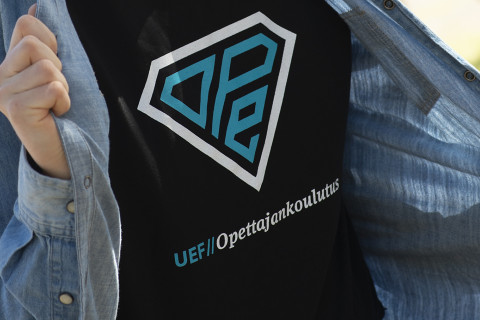For children and young people, one of the most meaningful and important adults in their life is a teacher. Teachers build foundations for the future and act as role models for young people. Therefore, the conditions in which we educate our teachers are not insignificant.
The Joensuu Campus currently offers Finland’s most versatile teacher training. Our mission is to educate good role models. We provide an excellent learning environment for teachers of the future.
The School of Applied Educational Science and Teacher Education constitutes part of the Philosophical Faculty.
120
Staff members
1,300
Degree students
4
Major subjects
Studies
We educate early childhood education teachers, class teachers, craft and home economics teachers, and subject teachers. We also provide Finland’s widest selection of minor subject study rights. The amount of practical training is also larger than in many other comparative study programmes. Digital and interactive learning environments are part of our everyday work.
Our aim is to keep developing our operations, and to do so with the best interests of the students in mind. Our students have excellent opportunities for internationalisation during their studies.
In addition to our programmes taught in English (see below), we also offer a variety of degree programmes taught in Finnish. To learn more about our degree programmes, please visit our page in Finnish.
Doctoral programme and international Master's degree programmes
Research
Our areas of research are education and teaching and learning in early childhood education, general education, and teacher training. The aim of the research is to develop education, training and teaching practices as well as schools, teacher training, and learning environments. Students are welcome to participate in the School of Applied Educational Science and Teacher Education’s research activities by writing their thesis as part of a research project.
Research areas
Research concerning sustainable development of education organisations is implemented in several research groups. Research in early childhood education focuses on pedagogy of well-being. Well-being is considered multidisciplinary from the viewpoints of development and learning, group dynamics, collaboration between adults, teamwork and parenthood. The aim is to find pedagogical practices that boost holistic well-being and promote physical, social and psychological safety in early childhood education context. The School is partner in the Learning and Development in School group. Research aims to identify strategies of leading a sustainable school development, help teachers to find ways to intentionally learn in classroom, use co-regulation as the strategy for agency and well-being and, to understand how students could use peers as a resource for learning in school. The research aims to contribute educational understanding and theory building as well as improving educational practices. Motivation research focuses on motivation of child and young, learning and well-being, and particularly on developmental and situational dynamics, as such and in relation to various learning environments and cultural contexts. Findings from this research results in knowledge that helps to understand individual differences as well as their developmental nature and contextual dependencies better, and which can be utilised in support of education and teaching. Research on motivation and well-being is also applied in the other two research areas, in science education, and particularly in mathematics, and in research on digital learning environments.
Science education research aims to gain a better understanding on early childhood and school science pedagogy. Research focuses on the significance of learning environments and innovative pedagogical and instructional practices on students’ interests in science and science-related fields and on learning knowledge and skills. Teachers’ professional development is an essential part of the studies. Research focuses on socio-scientific learning environments in formal education and outside formal education including media environment. The aim is to develop particularly argumentation, decision-making, and reflection competence as well as responsibility and working life skills of young people. Learning environments and innovative pedagogical practices are implemented and studied in learning different subject, in integrated teaching and in climate education. Central to our work is the mission to stimulate evidence-driven discourse on vital issues facing schools, parents, students, community, and schoolteacher educators. We are committed to better understanding the fundamental practices and conditions that advance teachers’ and students’ engagement towards science, sustainability, and climate issues.
Research focuses on using information and communication technology (ICT) for supporting teaching and learning targeting especially pre-service and in-service teachers. The research area is broad and includes several perspectives. The key themes are teachers’ and pre-service teachers’ readiness for ICT integration, higher education pedagogy (Flipped learning), ICT-supported home-school collaboration, learning analytics, machine learning and lifelong learning.
Research and development work is carried out together with various actors and faculties. Cooperation has been established especially with researchers in Computer Science and Applied Physics. Our research projects are linked with the Learning in Digitalized Society (DIGS) Research Community and contribute to the profile area of Diversifying learning and interaction at UEF.
Our research groups and projects
News and events
News
Events
Contact information
Please find a comprehensive list of staff members in UEF Connect, where you can also search people by name or key word.
University of Eastern Finland’s Student and Learning Services is responsible for providing general study-related administrative services for students and staff, as well as offer support for applicants.
Postal address
University of Eastern Finland
Philosophical Faculty
School of Applied Educational Science and Teacher Education
P.O. Box 111, FI-80101
Finland
Visiting address
Yliopistonkatu 7, Futura, Joensuu

















































